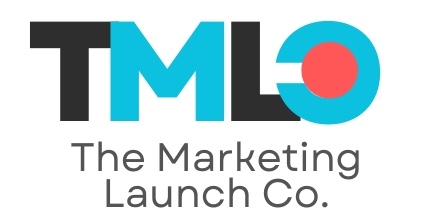In this post, we’ll break down these key terms, explain how they work together, and offer examples of providers you can trust.
1. What is a Website Domain?
Your domain is your website’s address—the thing people type into their browser to visit your business online. Just like your business needs a physical address, your website needs a digital one.
- Example: If you run a business called “Green Gardens,” your domain might be
greengardens.co.ukorgreengardens.com.
Domains need to be purchased and registered, usually on an annual basis. The price depends on the popularity of the name and the domain extension (e.g. .co.uk, .com, or .org).
Domain Providers:
- 123-Reg: A UK-based provider, ideal for securing
.co.ukdomains. - GoDaddy: Easy to use and offers a wide range of domain extensions.
- Namecheap: Affordable and known for its good customer service.
2. What is Website Hosting?
Once you have a domain name, your website needs a place to “live.” This is called hosting. Hosting stores your website’s files, images, and content on a server so that visitors can access them online.
- Example: Think of hosting like renting a shop for your business. While your domain is the shop’s address, hosting is the building where everything is stored.
Types of Hosting:
- Most website builders include hosting, making it easier for you to build and manage your website all in one place.
- Shared Hosting: Your website shares server space with other websites. It’s affordable and perfect for small, low-traffic sites.
- VPS Hosting: More resources than shared hosting, giving your site better performance.
- Dedicated Hosting: You have a whole server to yourself—this is ideal for high-traffic or large websites.
Hosting Providers:
- Bluehost: A great option for small businesses due to affordability and support.
- SiteGround: Offers excellent speed and reliability.
- Fasthosts: A UK-based company with various hosting options for growing businesses.
3. What are Website Builders?
If coding sounds daunting, a website builder is your solution. Website builders are platforms that let you design your website without needing technical skills. They offer templates, drag-and-drop tools, and even built-in features like e-commerce or contact forms. They are easy to use tools to create your website.
- Example: Think of a website builder like assembling furniture from a kit—no need to be a carpenter because the pieces are pre-made for you.
Website Builders that include hosting:
Most website builders also include hosting, making it easier for you to build and manage your website all in one place.
- Wix: Great for beginners with plenty of templates and flexibility.
- Squarespace: Offers stunning, design-focused templates, perfect for businesses with a visual focus.
- Weebly: Easy to use and includes hosting, perfect for basic business websites.
- WordPress.com: A hosted version of WordPress that includes hosting and is ideal for more complex or blog-driven sites.
- Shopify: Tailored for e-commerce businesses, combining hosting, website building, and online store management.
Benefits of Builders with hosting:
- Simplified Setup: No need to juggle between separate hosting and building tools.
- Support: You get help for both your website and hosting from one provider.
- Security & Maintenance: Updates, security, and performance are managed for you.
While these all-in-one services are convenient, be aware that they can limit your flexibility or customisation options if your business outgrows the platform.
4. What is email hosting? Do I need it?
When you want a professional email (e.g., [email protected]) for your business, you need email hosting. It’s much better for your business image than using free email services like Gmail or Yahoo.
- Example: It’s like using branded stationery for your business—professional and reliable.
Email Hosting Providers:
- Google Workspace: Offers business email along with tools like Google Drive and Calendar.
- Microsoft 365: Includes business email and access to Microsoft Office apps like Word and Excel.
- Zoho Mail: A cost-effective email solution for small businesses.
First steps when setting up your website and email for your small business.
If you’re looking to establish an online presence for your small business, here’s a quick guide on how all these pieces fit together:
- Buy a domain: Register something that reflects your business name (e.g.,
greengardens.co.uk). - Choose a hosting provider: If you’re using a website builder, hosting is likely included. If not, go for an option like Bluehost or SiteGround.
- Build your website: Use an easy website builder like Wix or Squarespace if you don’t have web design experience.
- Set up professional email: Use Google Workspace or Microsoft 365 to get business-branded email addresses.
Having a professional and functional online presence is critical for small businesses today. Understanding how domains, hosting, and website builders work will make it easier to get your business online and connect with customers.
Feel free to use this as a guide for getting your business online! If you need more help with setting up your digital marketing or understanding the best tools for your business, feel free to reach out—we’re here to help!


